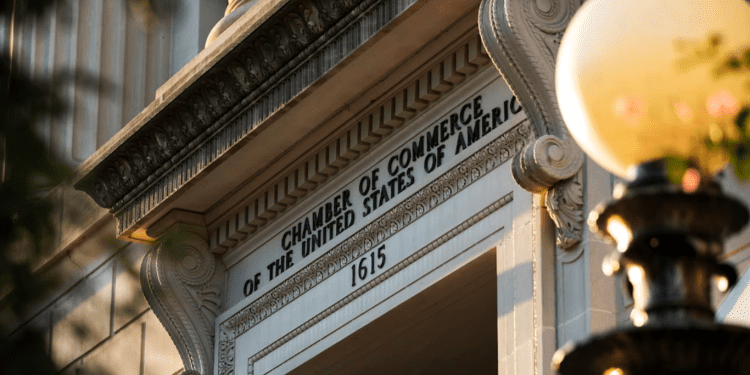- The US Chamber of Commerce has publicly supported Coinbase in its legal battle against the SEC.
- The Chamber argues that the SEC’s lack of clear regulations is not just damaging to Coinbase, but also to the broader business community and innovation in the digital asset industry.
- The Chamber’s amicus brief filing is a significant move in this case, illustrating the broader stakes for both the digital asset industry and the overall economy.
In a remarkable development that sends ripples through the digital asset industry, the US Chamber of Commerce has voiced its support for Coinbase in its ongoing dispute with the Securities and Exchange Commission (SEC). The crux of the issue is the need for regulatory clarity on what constitutes security in digital assets.
The Chamber’s Amicus Brief: A Call for Transparency
The Chamber of Commerce, a highly influential organization known for its advocacy for US businesses, made its stance clear in an amicus brief filed in the case of Coinbase vs. SEC. An amicus brief, typically filed when a party has a substantial interest in a case’s outcome, represents a strong show of support for Coinbase’s quest for regulatory clarity. The Chamber’s argument is straightforward: the SEC’s refusal to clarify its regulatory stance is causing economic harm to Coinbase and, by extension, the broader business community.
The lack of clear regulations has damaged innovation within the digital asset industry. This sentiment was eloquently expressed in the brief, stating, “The digital-asset industry offers a case study in how regulatory uncertainty undermines innovation.” This ambiguity impacts not just the industry’s growth trajectory, which had been impressively steep, reaching a trillion dollars in market capitalization by early 2021, but also broader economic implications.
Regulatory Chaos: Implications for the Economy and Innovation
The Chamber of Commerce argues that the SEC’s non-committal approach to digital assets is not just a hindrance to business but also a potential detriment to the public. They contend that “Americans lose out on the practical benefits that digital-asset products can provide, such as making the financial system more inclusive for the previously unbanked.”
The SEC’s enforcement-based approach to regulation leaves businesses in the unenviable position of guessing their legal boundaries. The agency’s reluctance to test its legal claims in court, choosing instead to settle enforcement actions with companies, exacerbates this ambiguity. This strategy leaves businesses with two unfavorable options: accept the risk of future litigation and the associated financial burdens or cease activities that the agency may or may not target.
The Need for a Resolution
As the digital asset industry grows and evolves, the need for clear, concise, and applicable regulatory standards becomes more critical. This is not just about Coinbase or the digital asset industry; it’s about creating a regulatory environment that supports innovation while protecting stakeholders. The Chamber of Commerce’s backing of Coinbase underscores the broader implications of this case and the pressing need for resolution. The question now is how the SEC will respond and what this response will mean for the future of digital assets.














